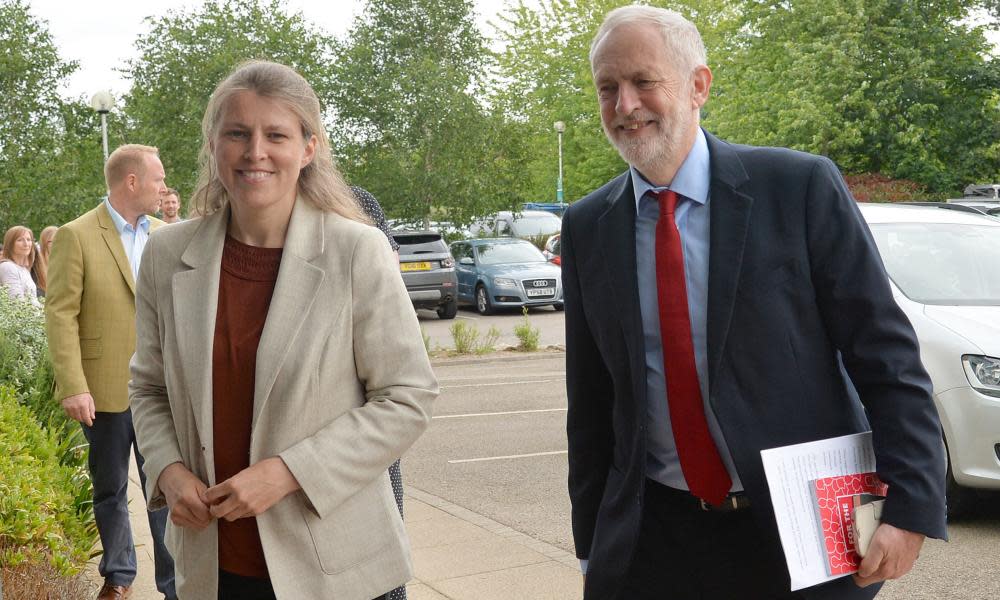Team investigating anti-MP crime deals with 102 complaints in first year

A specialist police team set up to investigate crimes against MPs has dealt with 102 complaints in its first year of operation.
The Metropolitan police’s parliamentary liaison and investigations team, set up in August 2016 after the murder of the Labour MP Jo Cox, has dealt with 71 complaints of “malicious communication”, which includes abusive messages or letters, 15 thefts and seven allegations of criminal damage.
There were five reports of harassment and four of racially aggravated harassment between August 2016 and 20 July 2017.
The figures were met with concern from MPs, many of whom have spoken out about abuse in recent months.
Labour MP Rachael Maskell said the numbers were deeply worrying, adding that it was important that people spoke up about such crimes.
She said: “That is about one in six MPs and I would want to know how these figures compare to the rest of society. It does show the vulnerability of people in public life who stand up to represent their communities.”
Maskell, who was elected to York Central in 2015, added: “For me, day-to-day abuse is low. But I have had far-right groups sending me death threats following the death of Jo Cox, and the police were absolutely excellent at addressing this.
“We have to make sure that we have the right legislation so everyone is protected … Certainly from talking to colleagues a lot of the abuse has been online, not exclusively but it seems like most of it takes place with people behind screens.”
Tom Watson, the deputy leader of the Labour party, said the figures were “shocking but sadly not surprising”.
He said: “A number of our colleagues have been threatened with violent retribution if they voted in a particular way … we cannot let intimidation undermine our democracy in this way. Harassment and bullying on social media is not unique to MPs. These figures show why big platforms like Twitter and Instagram have got to get their house in order.”
Tom Brake MP, the Lib Dem MP for Carshalton and Wallington, said the figures showed “an alarming level of crimes committed against MPs. The level of aggression towards MPs and public servants, particularly on social media, must be toned down. If not, parliament will be the poorer as high quality candidates are put off by the level of abuse”.
The new Met figures come after Theresa May ordered an investigation into intimidation experienced by parliamentary candidates during the last election. May asked the committee on standards in public life to prepare a report, saying she was “horrified” by stories from colleagues about “intimidation, bullying and harassment”.
The committee will hear evidence from various MPs, the CPS, the parliamentary director of security, the National Police Chiefs Council and the deputy speaker on Thursday as part of its inquiry.
A number of MPs have called for an end to anonymity online and said there should be a new code of conduct for members of political parties, which will be considered by the committee as it prepares to put forward recommendations to No 10. The report is due to be delivered before Christmas.
In her maiden speech Labour MP Rosie Duffield last week said: “Before I speak a little more about my constituency, I want to mention the so-called ‘trolling’ of my, mostly female, colleagues over the summer. I have already experienced a fair amount of trolling myself. This ranges from ill-informed, badly researched articles published as fact to unpleasant personal messages late at night, and vile, vitriolic insults from a small, but persistent, handful of activists from other parties posted online.”
She added: “Groups such as Glitch UK and Reclaim the Internet, led by my colleague my Rt Hon Friend Yvette Cooper and many of my other friends and colleagues in this house, are deserving of our support. We must continue to fight against this and highlight the problem.”
A spokesperson for the committee on standards in public life said: “Hearing reports of intimidation experienced by parliamentary candidates, MPs and others, it is clear that too many individuals in public life have had experiences that nobody should have to go through.”

 Yahoo News
Yahoo News 
